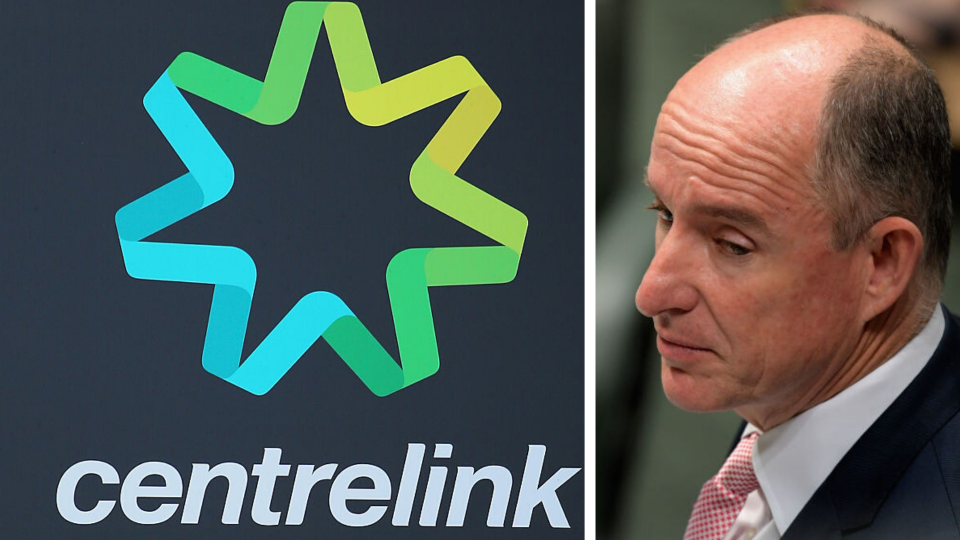Government announces major robodebt changes

The federal government will stop sending automated debt letters to welfare recipients without having a human officer check them first, under a major shake up of Centrelink’s controversial debt recovery scheme.
Related story: What can I do if Centrelink sends me a debt notice?
Related story: ‘Robodebt is very likely illegal’: Bill Shorten launches class action into Centrelink
Related story: Centrelink seizes tax returns of Aussies appealing robo-debts
The “Online Compliance Intervention” scheme was intended to recover up to to $4.5 million in Centrelink debt a day and worked by comparing Australian Tax Office income data with welfare payments.
However, critics claimed the calculations were frequently flawed and resulted in incorrect debt notices issued to thousands of Australians.
The government today decided to remove this process.
“The department has made the decision to require additional proof when using income averaging to identify over payments,” read an internal email to all Department of Human Services compliance staff, the ABC reported today.
"This means the department will no longer raise a debt where the only information we are relying on is our own averaging of Australia Taxation Office income data."
Minister for Government Services Stuart Robert said in the future, debts based on income averaging will require more research before notices are issued.
“There is no change to the construct of the onus of proof," Robert said in a press conference this afternoon, describing those affected as a “small cohort”.
“We will still reach out to Australians to say that income averaging indicate that they may possibly have a debt, and we'll use other proof points as well, and we will ask them to engage with the department to identify through bank statements or through pay slips or other means, that indeed, they don't have a debt,” Robert said.
“We do not stand back from ensuring the legal obligations, that the right people get the right money. And in so, ensuring that people who have been overpaid, repay that debt.”
Debts frozen
Affected debtors will also have those debts frozen as the individual reviews are carried out.
“We will focus on debts where the person did not respond to our requests for clarification. We will look at each of those instances with a view to assessing whether further information is available to clarify what debt may still be owed,” the email read.
“For customers who are affected, the department will freeze debt recovery as they are identified and will then look at each debt. The department will write to customers to let them know this will happen automatically.”
Centrelink changes come two weeks before court battle
Victoria Legal Aid welcomed the changes on Tuesday, noting that they came two weeks before the legal support group was due to take its claim that income averaging was illegal to court.
“We welcome the news that Centrelink will no longer use averaging to calculate faulty robodebts. Now the government should work with users to design a fairer, more accurate system that people can trust,' said the executive director of civil justice access and equity Rowan McRae.
Law firm Gordon Legal in September also launched a class action to investigate if more than 400,000 debt notices were lawful.
Former Labor leader and Shadow Minister for Government Services Bill Shorten also spoke out in September, calling robodebt a “stain on the civic life of this great nation”.
“It is increasingly clear when it comes to issuing debt notices, the Australians Stuart Robert’s Department shoots first and asks questions later,” Shorten said. “It is harsh and inaccurate and has been wrong nearly a quarter of a million times.”
“It is not just immoral but almost certainly illegal. The Department’s silence on this point speaks volumes.”
In February, it was also revealed that Centrelink had written off or reduced 70,000 robodebts due to errors - around 17 per cent of the debts raised since the scheme began in July 2016.
Greens senator, Rachel Siewart noted the impending legal case and called on Robert to be “transparent” about the reasoning behind the backdown.
I call on the Minister to be transparent about these changes.
One wonders if the Government is anticipating the outcome of cases currently before the court.#Auspol #Robodebt #Centrelink— Rachel Siewert (@SenatorSiewert) November 19, 2019
She said more details were also required for those with pending robodebts.
According to the email obtained by the ABC, the customer compliance division in charge of robodebt will “methodically work through previous debts identified” and make changes where necessary.
With AAP.
Make your money work with Yahoo Finance’s daily newsletter. Sign up here and stay on top of the latest money, news and tech news.

 Yahoo Finance
Yahoo Finance 
